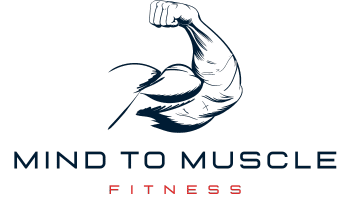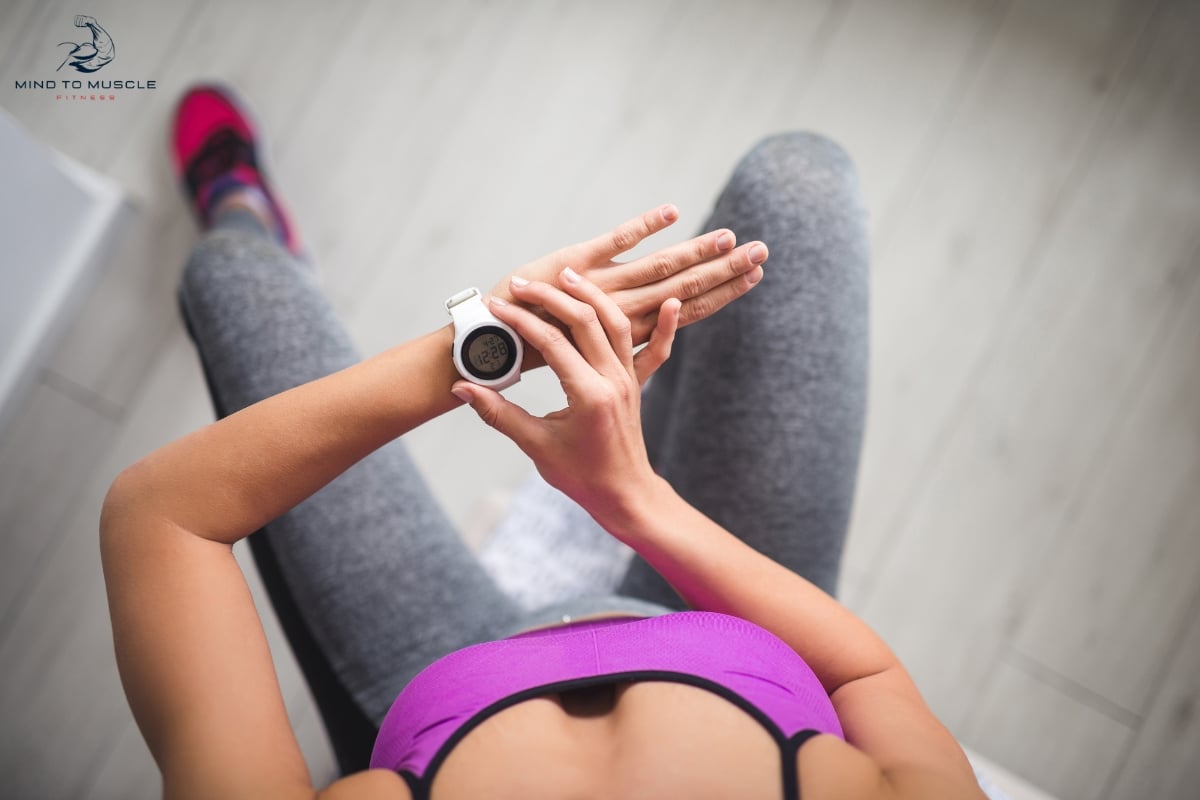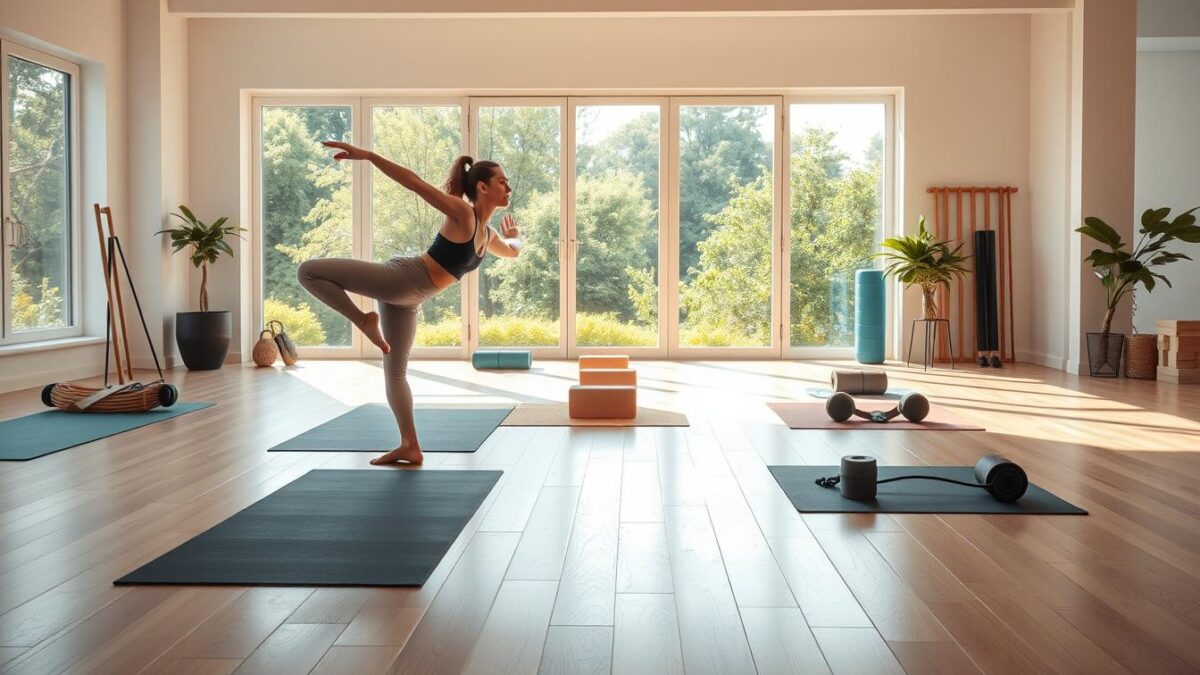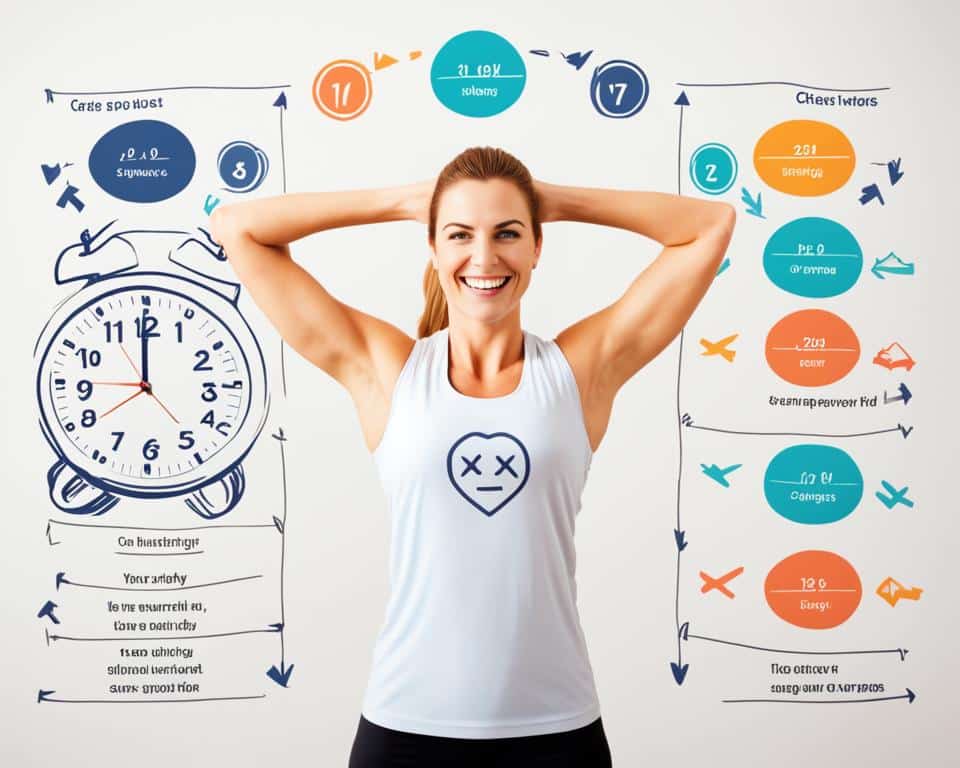
Unlock Your Gains: Best Time to Workout Revealed
Did you know working out at 7 a.m. might boost more than your mood? It could help you sleep better at night too. A study found early morning workouts can make your sleep deeper. Plus, it helps lower your body mass index (BMI).
It turns out, timing really is crucial. These discoveries show the benefits of aligning exercise with our biological clock. I’m here to guide you to the best time for your workouts. It’s not just about finding time, but syncing with your body’s peak hours.
Whether you’re up with the sun or active at night, the right exercise timing can transform your fitness outcomes. Let’s explore the science behind this. It could be the key to reaching your health peak.
Key Takeaways
- Morning exercise may amplify calorie-burning throughout the day and improve sleep quality.
- Fast-driven fitness fiends might burn up to 20 percent more body fat with pre-breakfast workouts.
- Afternoon periods herald the pinnacle of performance, boosting muscle function and endurance.
- Evening workouts can enhance reaction times and prove favorable for high-intensity disciplines.
- Optimizing your workout schedule requires harmonizing with your body’s internal rhythm.
Decoding the Best Time to Workout for Optimal Gains
As a muscle-building mentor, I know timing your workouts with your natural clock is key. It helps you get the most from your fitness regime. Knowing when your body is ready for exercise is crucial.
The World Health Organization highlights how matching exercise to our body clocks boosts heart health. I have seen clients make great strides by finding their best time to train. It’s critical for anyone looking to improve their fitness results. For instance, some people achieve better performance and recovery by exercising in the morning, while others thrive in the evening. Tailoring your schedule to your natural rhythm can maximize energy and endurance, just like strategies seen in the Daniel Craig workout routine, which famously helped him prepare for his roles as James Bond. By aligning workouts with your body’s optimal timing, you can unlock greater potential and sustainability in your fitness journey.

Understanding Your Circadian Rhythm and Exercise
Your circadian rhythm guides your body’s energy levels throughout the day. Syncing exercise with this rhythm can improve performance and speed up recovery. In 2021, research showed exercise’s role in fighting off severe SARS-CoV-2 effects, highlighting the importance of choosing the right time to work out.
Why Morning Might Be Your Ultimate Workout Window
Morning workouts can set you up for success. This time of day boosts cortisol, helping form habits and controlling hunger. After a morning session, people react less to tempting food, studies show. Plus, morning exercises might increase your lifespan, making early workouts a great choice.
Connecting Evening Workouts to Performance and Sleep Quality
Evening workouts have their benefits too. You have more energy from the day’s meals, setting the stage for top performance. But, exercising too late may interfere with your sleep, upsetting your workout timing.
Choosing morning or evening workouts can change your fitness game. I guide every client to find their perfect time, helping them tap into their natural rhythm for the best results.
Maximizing Workout Efficiency: Identifying Your Prime Hours for Exercising
When creating your workout plan, think about your body’s circadian rhythms. We all have times when we feel more energetic or tired during the day. It’s best to exercise when you feel strongest and most alert. For those who like working out in the morning, you might see benefits like a faster metabolism and clearer thinking. This can help you stick to your exercise routine.
If you’re not a morning person, that’s okay. The key to good exercise timing is finding what fits you best. A study in Medicine and Science in Sports and Exercise found morning exercisers are less distracted by food. But working out in the afternoon might be perfect for you. Studies show that our performance might peak in the afternoon because our body temperature is ideal, which could improve your workout.
Exercising on an empty stomach early might burn more fat. But exercising in the evening might improve your performance, especially in intense workouts. This is because your reaction times might be faster. Evening workouts can also lead to better sleep. Try different times to see what works best for you. You might find that the best time is when science says our bodies are ready.
- Add structure to your routine with a consistent, daily exercise schedule.
- Mind the balance between your internal energy clock and your commitments.
- Remember that the ideal workout schedule is the one that you can maintain consistently.
It’s important to think about how your workout time affects you in the long run. Working out late might not suit people who get up early. And if you’re a night person, morning workouts could be tough. Not matching your exercise time with your body’s clock could affect your health. So, it’s good to exercise when you naturally have the most energy.
The Impact of Timing on Exercise Intensity and Focus
Want to make the most of your workout? The prime hours for exercising might hold the key. Science has found that early risers tend to see better fitness results. Let’s dive into how the timing of your workouts can boost their effectiveness.
How Exercise Time Influences Concentration and Energy Levels
Choosing a fitness session timing that fits your body clock can lead to more focused, intense workouts. Knowing when to work out can make a big difference. For example, working out in the morning, from 7 a.m. to 9 a.m., is linked with a smaller waist and BMI.
This is important, as those exercising in the early hours had a BMI of 27.5. This is lower than those working out at noon or night, who averaged a BMI of 28.3. So, picking the right time to exercise can really help you reach your health goals.
Aligning Fitness Session Timing With Your Daily Energy Peaks
It’s not just about weight loss; it’s about syncing with your daily energy flow. Working out in the morning leverages your body’s natural cortisol boost for better energy. Morning exercisers, even those hitting the weekly exercise minimum, showed the lowest BMI and waist measurements.
What’s more, sticking to morning workouts tends to be easier for many. Fitting exercise into your busy schedule can foster a solid routine. As someone who coaches on muscle building, I suggest finding your peak hours for fitness. It can elevate your workout consistency and intensity.
| Time of Day | Average BMI | Average Waist Circumference (cm) | Adherence Rate |
|---|---|---|---|
| Morning (7-9 AM) | 27.5 | 96 | Higher |
| Midday | 28.3 | 97.8 | Lower |
| Evening | 28.3 | 97.5 | Lower |
This data shows that sticking to a morning workout routine often leads to success. Even if they are less active during the day, morning exercisers stay on top fitness-wise. This suggests that choosing a specific time for workouts could be more effective than fitting them in whenever possible.
Perfect Training Time: Balancing Sleep, Hunger, and Hormonal Cycles
Finding the ideal workout schedule is more than just setting gym time. It’s about syncing with your body’s natural cycles. A key rule in fitness is not to trade sleep for an early workout. Sleep loss can hinder muscle growth and recovery, which is the opposite of what we want.
Yet, working out in the morning can mesh well with our body’s hormones. It uses high morning cortisol to help us burn fat and control hunger. So, for many, the best time to exercise might be in the morning.
But, the story changes in the afternoon. Our bodies burn around 10% more calories later in the day. This makes late afternoon or early evening a great time for working out. At night, we can exercise without sacrificing sleep. Evening workouts can also help with weight management by lowering ghrelin, the hunger hormone.
- Morning routines become a part of our lifestyle. They offer less room for excuses, boost alertness, and increase metabolism through fasting workouts.
- Evening workouts change our lifestyle for the better. Instead of eating snacks and watching TV, we’re lifting weights and running.
| Time of Day | Benefits | Considerations |
|---|---|---|
| Early Morning |
|
Sleep quality must not be compromised |
| Late Afternoon / Early Evening |
|
Should not be too close to bedtime to avoid sleep disruption |
The perfect training time depends on you—your body clock, eating habits, and daily schedule. No matter when you choose to exercise, staying dedicated is key to seeing results!
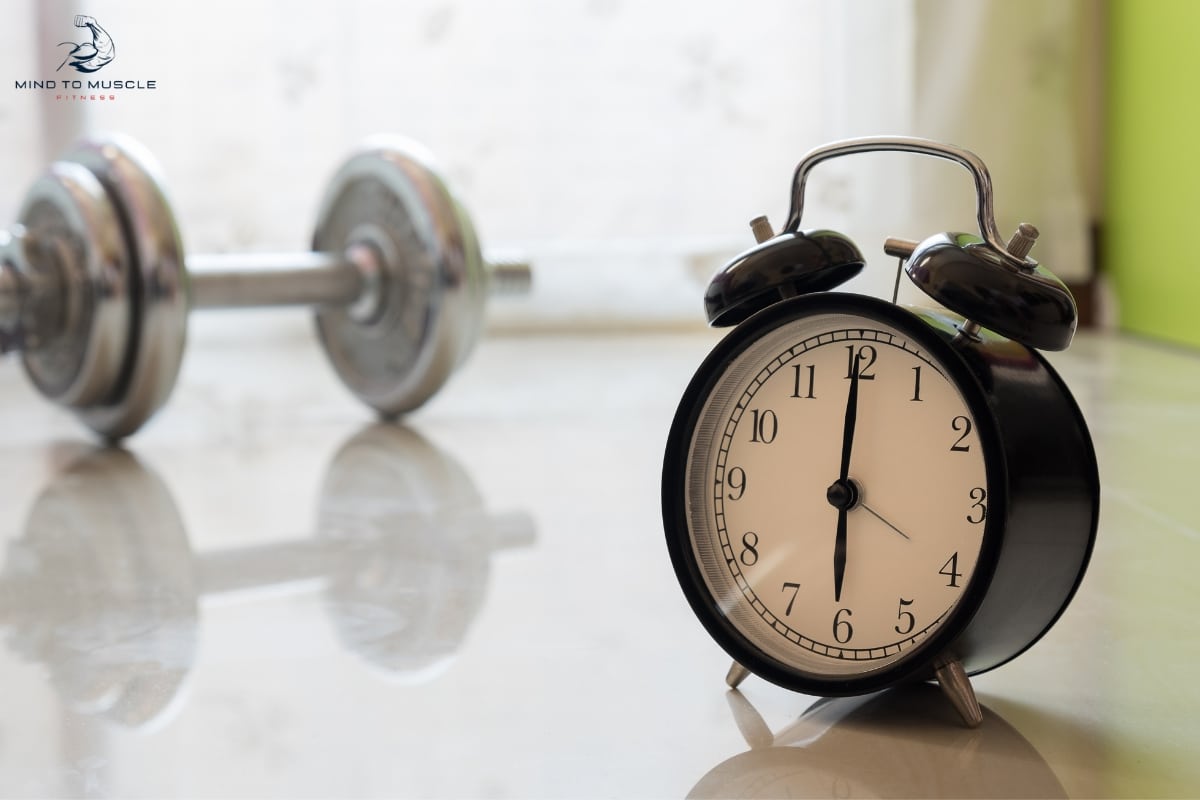
Finding Your Optimal Exercise Timing: Morning vs. Evening Debate
Finding the best time to workout is key in your fitness journey. Working out for 150 minutes weekly is suggested for sleep benefits. But the dilemma remains: should you exercise in the morning or evening? We’ll explore the pros and cons of each to find your optimal exercise timing.
For those who love the morning, exercising early can boost your health. Morning workouts can help you sleep quicker and control blood pressure better. They also adjust your body clock, allowing you to sleep well at night. For women, working out in the morning can lead to more fat loss, especially around the belly. Research shows women lose 7% more belly fat and 3% more total body fat with morning workouts than in the evening.
Moving to the evening, this time favors men’s fat burning. Men can see a 28% increase in fat burning over 12 weeks with evening exercise. Though it might not fit early risers, late workouts improve sleep for night people. Ending your workout 90 minutes before bedtime helps sleep. For women, evening workouts could mean a 7% increase in upper body strength.
The best choice? It’s about consistency, whether morning or night fits you best. Match your workouts with your daily rhythm and life. My advice: Pay attention to your body, use the science, and adjust your workouts. This will improve not only your fitness but also your life’s quality.
